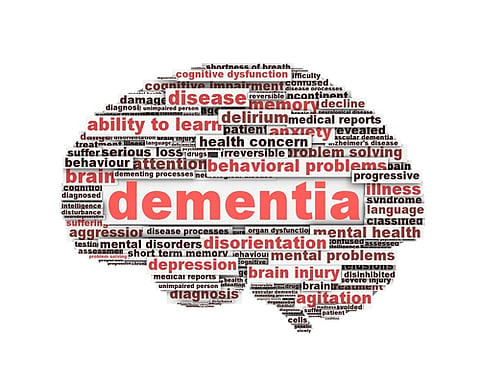
- Home
- Live Blog
- Breaking News
- Top Headlines
- Cities
- NE News
- Sentinel Media
- Sports
- Education
- Jobs

Garima Tripathi
(Garima Tripathi is the co-founder of Care24. May 21-27 is Dementia Action Awareness Week)
Dementia affects the memory, thinking, behaviour and the ability to perform everyday activities. Alzheimer’s disease is the most common form of dementia. While it is true that most cases of dementia cannot be treated, early diagnosis can greatly help in managing the symptoms in most cases. While raising awareness and offering support will always be important, we must go further to create a change in communities and change the attitude of people towards patients with dementia. We need a fresher approach towards dementia that includes action taken by all stakeholders to create a caring environment for the patient.
Patients with Alzheimer’s disease and dementia deserve our love and respect, but nothing can replace the full-time care and attention that a professional caregiver can provide. Caregivers should not involve people with dementia in decision-making because of their cognitive impairments; but we should treat them as if they had no cognitive impairments and help them retain simple decision-making joys.
We should plan our care around the experience, needs and abilities of the person with dementia. We need to be more understanding so that we can start to step into that person’s world and meet them where they are.
Alternate Therapies and their Huge Impact
One caregiver reported the happy outcome of his patient with dementia who responded positively to his favourite music and when he was around his pet dog. Another reported that more than verbal communication, he resorted to the non-verbal means of communications like reading facial expressions of his patient as he discovered that such expressions communicate feelings. Eye contact, body language and touch proved to be great ways to understand a dementia patient.
Meaningful activities like listening to music, gardening and alternate therapies like pet therapy have shown remarkable effects in many cases. A fresh perspective towards dealing with this is required. An attitude of acceptance can greatly encourage patients to come to terms with the change.
Healthcare providers, the government and support groups need to recognise that diseases of the elderly are going to be a huge public health problem in India. The prevalence of this disorder in India is accelerating and unrecognised cases of dementia are common in our population, especially among mild cases.
Cognitive screening programmes for the elderly, quality homecare for these patients and public education policies designed to increase awareness of dementia are needed if interventions for individuals with potentially manageable dementia are to be implemented.
Challenges and a Holistic Approach
The major challenge that needs to be addressed is changing the mentality of the people towards this burgeoning crisis. People need to be made aware of the fact that dementia and related problems are not merely old-age related ailments. These are neurological complications that affect the aged that need proper diagnosis, care and support. Proactive diagnosis of dementia and delirium is the need of the hour. With the increase in nuclear families, joined-up care among family, relatives and professional healthcare providers can be the optimal solution. Holistic treatment management with home healthcare providers in the comfort of one’s home will be the game changer. (IANS)